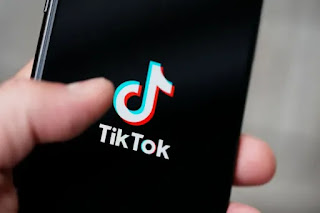I want to trust TikTok, the wildly popular social media platform that’s put every other platform on notice. But do I want to trust it because I like it so much?
Back when the Trump administration sought to ban TikTok, I wrote a vehement defense, much of it based on what TikTok told us about how it was managing our data — locally in the US and separate from ByteDance’s Chinese ownership and the Chinese government that stands over the shoulders of virtually every local business.
My understanding at the time was that this shielded our data, basically details of all our activities and interests, from prying eyes, especially from a country that actively practices cyberterrorism against the U.S. and other countries.
However, it’s TikTok’s new efforts to scrub clean its data handling approach that have me reconsidering my earlier opinion.
Earlier this month TikTok revealed it was working with the Biden Administration to take all of TikTok data off its own infrastructure and move it to Oracle, a well-known, third-party database and cloud services company. The idea is that if the data doesn't live on TikTok-owned servers, even ones in the U.S., Chinese employees can’t access it.
That’s good, right? My problem is that it’s now obvious TikTok’s Chinese employees at various levels have still had some access to our TikTok data for years. There’s no indication that anything nefarious is going on. In fact, with TikTok’s growing US workforce, I’m sure their intentions are only to satisfy, monetize and, one would hope, protect U.S. users. But the Chinese workers have always been in the mix, and I no longer have confidence that somewhere back at the ByteDance homebase someone hasn’t been looking for signals that could help the Chinese government build better cyberattacks on either U.S. citizens or our infrastructure.
Perhaps that effort wouldn’t have been state-sponsored, though, because any indication that’s happened would destroy everything TikTok’s built in the U.S. I think the Chinese have about as much interest in harming TikTok’s U.S. growth as it does in somehow slowing down or harming Apple’s lucrative Foxconn manufacturing plants in Shenzhen.
Still, I no longer think TikTok has been fully transparent with us, which is why I’m pleased it’s now embarking on this data transfer approach.
In the meantime, FCC commissioner Brendan Carter stepped forward late last month claiming TikTok broke the policies of both Apple’s App Store and Google Play store and should be removed immediately. Apple and Google were supposed to respond by late last week. It’s not clear they have.
Carter’s argument hinges on his belief that TikTok is a data harvesting arm of the Chinese government. I agree that TikTok still has some explaining to do, but do not agree that it’s providing an open door to our TikTok dances, challenges, and trends.
I still do not believe that there’s the right kind of sensitive data stored in TikTok as, say, your personal or corporate emails or text conversations. It would be bad if Beijing were accessing all of it — though I would remind people that TikTok is essentially a public platform and if someone in China wanted to watch your bad impressions, silly sketches, or all the personal details you share within your TikToks, they could do so directly through the app.
I did notice that Carter sent his letter on June 28, the day after the blockbuster January 6th Attack testimony by former White House aid Cassidy Hutchinson. I don’t know that these things are connected. Carter is a Republican and it did feel a little bit like, “look here, not there,” but that might just be me.
TikTok should clean up its act to the Biden Administration’s satisfaction — which I think it’ll do in short order — and keep our data clear of its Chinese owners wandering eyes. That would satisfy me and should satisfy Carter.
We don’t need to remove TikTok from our lives (maybe cut back on it a bit, just ask TikTok), but we do need to be wary of all services that use our data and complex, inscrutable algorithms to help deliver more content and ads. Being aware this is happening and understanding exactly how it works and who can see what is now table stakes. We should demand it of every service, whether based in China or California.





No comments:
Post a Comment